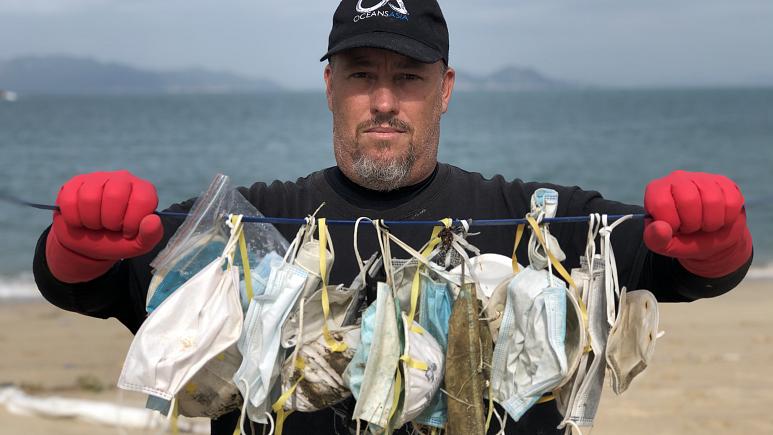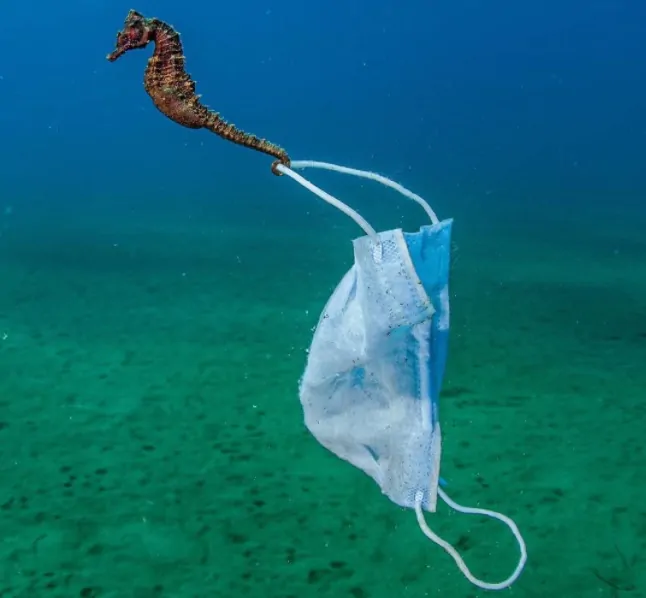A recent study from Nanchino University finds that almost 100% of the plastic waste produced during the pandemic will either be floating in our oceans or lying on our beaches by the end of the century.
Covid protective devices are HARMING THE ENVIRONMENT
# By the end of August 2021, almost 8.4 tons of pandemic-related waste were produced across the globe.

A recent study by a team of researchers at the University of Nanchino, published in the “Proceedings of the National Academy of Sciences” journal, evaluated the ecological impact related to plastic waste produced during the Covid-19 crisis.
The study showed that, as of 23 August 2021, almost 8.4 tons of plastic waste were produced across the 193 countries examined in the paper. According to the study group – led by Yiming Peng and Peipei Wu – while the demand for plastic equipment dramatically spiked in 2020, management, disposal and recycling procedures were not sufficient to absorb the unprecedented amount of polluting agents.
# Almost 26,000 tons of plastic waste were discarded in the oceans. Seventy-one percent of this waste will sit on our beaches before the end of the year.

As reported by the ‘Agenzia Giornalistica Italiana’ (AGI), waste cycle simulations carried out by means of stranding, drifting and scattering, pointed to a frightening conclusion: 25,900 tons of plastic material are polluting our oceans, 71% of which will litter beaches worldwide by the end of 2021. As a result, almost 100% of plastic, pandemic-related waste is expected to be sitting on the Ocean floor and seashores by the end of the century.
Does the protection of humanity have to come at the expense of our planet?
MATTIA LANDRO
(Original article by Fabio Marcomin)











